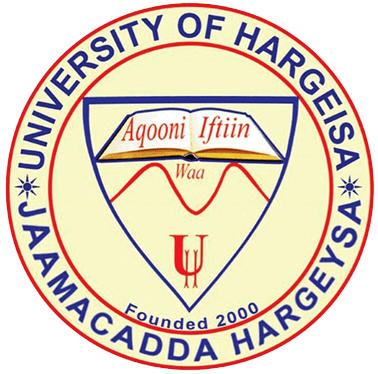On November 22nd, the University of Hargeisa in partnership with Oxfam launched a career development center named “Ignite Career Hub.” This initiative is part of an ongoing effort to provide opportunities for young men and women in Somaliland particularly the recent students and graduates of the University of Hargeisa to harness their potential to drive change and to become productive members of society. Ignite Career Hub is designed to advance employment and business support services to bridge the gap between job seekers, entrepreneurs, and the local business community. To bring service closer to young men and women, Ignite Career Hub is located at the University of Hargeisa premises and easily accessible to both youth and employers. ICH will serve as a knowledge, advice, and career guidance hub for young job seekers, entrepreneurs, and business owners looking for skilled youth to employ.
Although youth comprise around two-thirds of the labor force, the unemployment rate among young Somalis is one of the highest in the world; according to a 2012 UNDP report, unemployment among Somalis aged 14-29 was 67 percent and six out of every 10 Somalis intend to leave the country to pursue better economic opportunities elsewhere. Besides, traditional formal-sector entry points into the workforce for Somali youth are limited, and jobs leading to careers are scarce. Therefore, there is a growing need in Somaliland to support youth’s entry into formal and informal-sector employment.
ICH services for job seekers include work readiness training comprising CV writing, interview practice, communications, networking, coaching, job-matching, career guidance, internship/job placement, and mentorship. The ICH will use UOH’s existing placement programs to connect young people directly with jobs, internships, and training opportunities. As direct linkage with employers is an essential part of the ICH strategy, over 300 young men and women will benefit the hub in 2020. Aspiring young entrepreneurs are now able to access entrepreneurship training and business development services at the hub. ICH will provide customized most hands-on entrepreneurship training for youth to inspire and nurture students of the University of Hargeisa keen to start their own businesses. Those who successfully complete the entrepreneurship training are linked with other Oxfam’s ongoing programs running by Innovate Ventures, HarHub, and Shuraako for financing and incubation to get their businesses off the ground.
“I’m are happy to join Oxfam and UOH partnering in preparing youth to enter Somaliland’s thriving business community. This kind of innovative program is the most effective and flexible approach to fight against youth employment.” Said director general, Ministry of Employment, Social Affairs, and Family.
Khadar Eidle, Oxfam’s Youth Programme Manager, said, “One effective method for combating youth unemployment lies in setting youth employment and entrepreneurship hubs. This will help to encourage youth by facilitating youth employment, establish new startups, and foster a culture of entrepreneurship and economic prosperity in Somaliland.”
“This launch is most opportune and momentous program; this service will greatly contribute in decreasing the high unemployment of youth in Somaliland. It also signifies that UOH is still going strong; in fact, stronger as we continue to nurture leaders of tomorrow,” Said Vice President, University of Hargeisa.
The beginning of the 21st century has been marked by rapid advances in technological innovation—from smartphones and big data to artificial intelligence and machine learning. While new technology can generate jobs and increase labor productivity, it also creates job displacement and widens the skills gap. The World Bank estimates that 4 out of 5 children entering primary school today will eventually hold jobs that do not currently exist. These fast-changing realities leave ripple effects on communities worldwide, but the world’s poorest are likely to be the most adversely affected by these market shifts.











